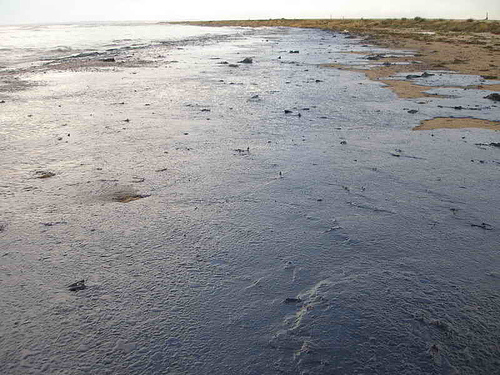BP Criticized for Refusing Mental Health Support

BP has been the cause of incredible levels of stress and anxiety since the explosion of the DeepWater Horizon rig nearly 100 days ago, and while the company has stepped in to cover the costs of cleanup and provide some financial support to those who have lost their livelihoods, their recent refusal to assist with mental health treatment for those suffering from the effects of the spill has the National Alliance on Mental Illness (NAMI) up in arms.
NAMI has criticized BP for their refusal to provide mental health funding for the communities affected by the spill. Dr. Michael Fitzpatrick, NAMI Executive Director, wrote a letter to Doug Suttles, the Chief Operating Officer at BP, imploring BP to step up. “It is imperative that BP recognize the urgent mental health crisis that has been created by the oil spill, including the heightened risk of long-term, chronic mental illness triggered by immediate conditions,” wrote Fitzpatrick.
The Louisiana Department of Health and Hospitals made two attempts to request funding from BP for mental health services, on May 28 and June 28. Both letters went unanswered, so the next letter Louisiana’s DHH sent was to the U.S. Department of Health and Human Services.
Fitzpatrick’s letter pushes the issue with BP. He wrote, “BP has put considerable resources into media advertisements pledging to help people affected by the oil spill” and that their failure to even reply is “inconsistent with that pledge.” Fitzpatrick reminded BP that Louisiana’s budget is already beyond the breaking point and that the “consequences of neglect and inaction are deadly.”
The entire contents of the letter from NAMI to BP can be read below.
Shadra Bruce is a contributing writer for Mental Health News.
Mr. Doug Suttles
Chief Operating Officer
BP Exploration and Production
Houston, TX 77079
Dear Mr. Suttles:
On behalf of the National Alliance on Mental Illness (NAMI), I want to strongly support the request from Allen Levine, Secretary of the Louisiana Department of Health and Hospitals for $10 million to help fund mental health services in communities affected by the Deepwater Horizon oil spill. With more than 1,100 state and local affiliates, NAMI is the nation’s largest grassroots mental health organization dedicated to improving the lives of individuals and families affected by mental illness.
It is imperative that BP recognize the urgent mental health crisis that has been created by the oil spill, including the heightened risk of long-term, chronic mental illness triggered by immediate conditions.
In recent weeks, BP has put considerable resources into media advertisements pledging to help people affected by the oil spill. The company’s apparent failure to respond swiftly to two appeals from Secretary Levine requesting financial assistance for mental health crisis counseling is inconsistent with that pledge.
Louisiana has struggled to provide services to its residents living with mental illnesses since Hurricanes Katrina and Rita in 2005. These storms catastrophically reduced the capacity of the state’s mental health care system, particularly through adverse impact on the availability of inpatient psychiatric beds, qualified mental health workforce and community-based services and supports. The state has worked hard to address these problems in recent years, but significant gaps in services remained — even before this latest disaster.
Louisiana’s mental health system has already been severely strained. The state does not have the resources to respond to the now rapidly growing numbers of people experiencing significant mental health crises due to the trauma of the oil spill and its impact on their livelihoods and ways of life. Nor should the state be forced to divert scarce mental health dollars away from existing services for people with schizophrenia, bipolar disorder, and other serious mental illnesses. Such a diversion of state funds would be a grave mistake, representing a short-term fix at the expense of the state’s overall long-term needs.
Ours is a public health concern. The psychological impact of the oil spill on the lives of people is widely documented. Rates of depression, suicides and suicide attempts, family violence, alcoholism and substance abuse and other serious mental health problems are sharply on the rise in affected communities. These problems are so severe that mental health issues were identified as the priority health concern from the disaster at a recent meeting of the Institute of Medicine in New Orleans.
BP has a legal and moral obligation to help finance mental health services and supports to individuals and families whose lives are now at risk as a result of the oil spill. The consequences of neglect and inaction will be deadly.
Sincerely,
Michael J. Fitzpatrick
Executive Director